Kroger Is Facing Backlash for Having This in Stores
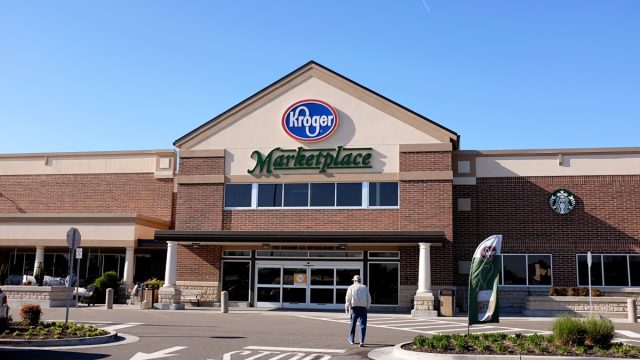
Over the years, Kroger has often been revered by shoppers for its product quality and commitment to good customer service. But that doesn’t mean the supermarket chain hasn’t faced its share of negative headlines in the first half of this year. In Jan. 2022, more than 8,000 workers for the company went on strike as a result of low wages, poor health benefits, and lax COVID safety measures. Then in May, the U.S. Department of Labor (DOL) cited a Kroger store in Mississippi for multiple violations of federal child labor laws. Now, the grocery chain is facing major backlash for allowing something else in its stores—this time directly impacting shoppers. Read on to find out why two agencies are starting an initiative against Kroger.
READ THIS NEXT: If You Shop at Walmart or Kroger, the FBI Has a Major Warning for You.
Kroger previously faced backlash over the use of chemicals.
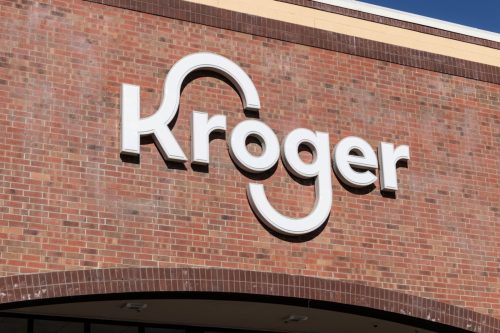
Just a few months ago, Kroger found itself on the receiving end of criticism over the use of chemicals. In March, environmental attorney Vineet Dubey filed a lawsuit against Kroger in Los Angeles County’s Superior Court on behalf of the Ecological Alliance organization. The suit claims that a number of the grocery chain’s private-label products contain high levels of lead, and that Kroger has failed to warn shoppers of “the presence of chemicals, including lead” in several of its store brand items. According to the organization, an independent food testing lab it commissioned found that several items from Kroger’s private-label—including salad kits, vegetable mixes, graham crackers, and bagels—contained lead levels that are well over the state of California’s “daily maximum exposure level” of 0.5 micrograms.
The grocer is now under fire for the use of other chemicals in its stores.
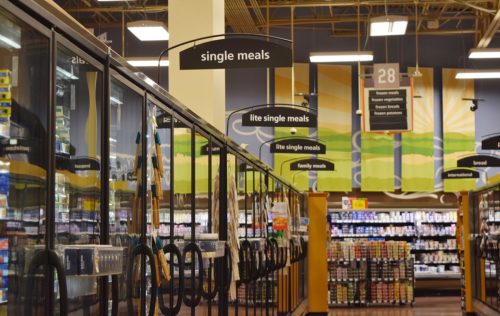
Now, Kroger is back in hot water with environmental organizations. On June 9, the Environmental Investigation Agency (EIA) announced that it has partnered with the nonprofit Green America to launch an initiative against Kroger for its use of hydrofluorocarbons (HFCs) in its refrigeration systems. According to the EIA, HFCs are greenhouse gases commonly used for cooling and refrigeration that have high Global Warming Potential (GWP) because they have “thousands of times the warming capacity of carbon dioxide.” Best Life has reached out to Kroger for comment but has not yet heard back.
“HFCs account for 63 percent of Kroger’s direct climate emissions,” Dan Howells, the climate campaigns director at Green America, said in a statement. “Kroger has known about this problem for years, but its efforts are failing to meet the urgency of the issue. The climate crisis is here, and we need Kroger to provide a clear, detailed plan to cut these dangerous emissions on a more aggressive timeline.”
RELATED: For more up-to-date information, sign up for our daily newsletter.
The organizations are urging consumers to join the protest.
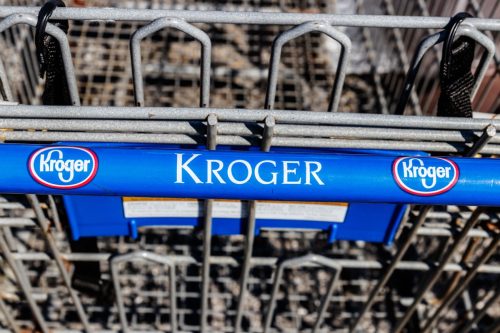
But the two organizations are not going at it alone. Green America and EIA have called on consumers to sign a letter to Kroger CEO Rodney McMullen, urging the grocery head to “set concrete commitments on phasing out HFCs from all stores, improving monitoring and repair of appliance leaks, and practicing responsible disposal of refrigerants to reduce emissions.”
The letter, which is listed as a petition on the Action Network’s website, already has 8,640 signatures out of its goal of 25,000. “Kroger’s investors are calling on the company to develop a plan to eliminate its use of HFCs. Friends Fiduciary filed a shareholder resolution with the company calling on it to act swiftly on HFCs. Now Kroger needs to hear from consumers as well,” Green America and EIA explained.
Kroger is falling behind the efforts of other major grocery store chains.
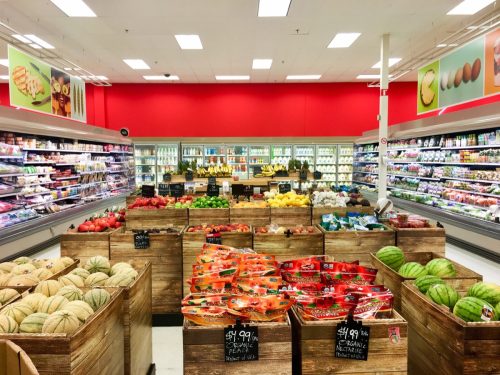
In a 2021 sustainability report, Kroger said that it intended to transition to lower-GWP refrigerants. But according to the EIA and Green American, Kroger has only currently committed to using non-HFC alternatives in seven new stores. There have been no plans issued for its nearly 2,800 stores that already exist. “At this rate, it would take Kroger hundreds of years to move off HFCs,” the two organizations warned. “Kroger needs to adopt ultra-low GWP refrigeration at all of its nearly 2,800 stores by 2030.”
Kroger is significantly lagging behind other grocery store chains, as it only scored 16 percent on the EIA’s 2020 Supermarket Scorecard, which monitors major U.S. supermarkets’ efforts to reduce HFC emissions. On the other hand, major chains like Target, Aldi, and Whole Foods scored above 30 percent and have already started taking steps to reduce HFCs in their stores, according to the EIA. At the same time, “following pressure from Green America, EIA, and allies, Walmart [also] announced that it would transition to ‘low-impact’ refrigerants by 2040,” the agency said.
“There is a global effort to phase down HFCs because of their potent climate impacts. It is incredibly shocking that a company like Kroger continues to rely on these obsolete climate destroying coolants when there are myriad other widely available and used HFC-free options,” Avipsa Mahapatra, the climate campaign lead at EIA, said in a statement. “Kroger must commit to adopting ultra-low GWP refrigerants in all new stores and to share a plan to phase out use of HFCs by 2030.”
READ THIS NEXT: Dollar General Is Under Fire for This “Serious Hazard” in Stores.